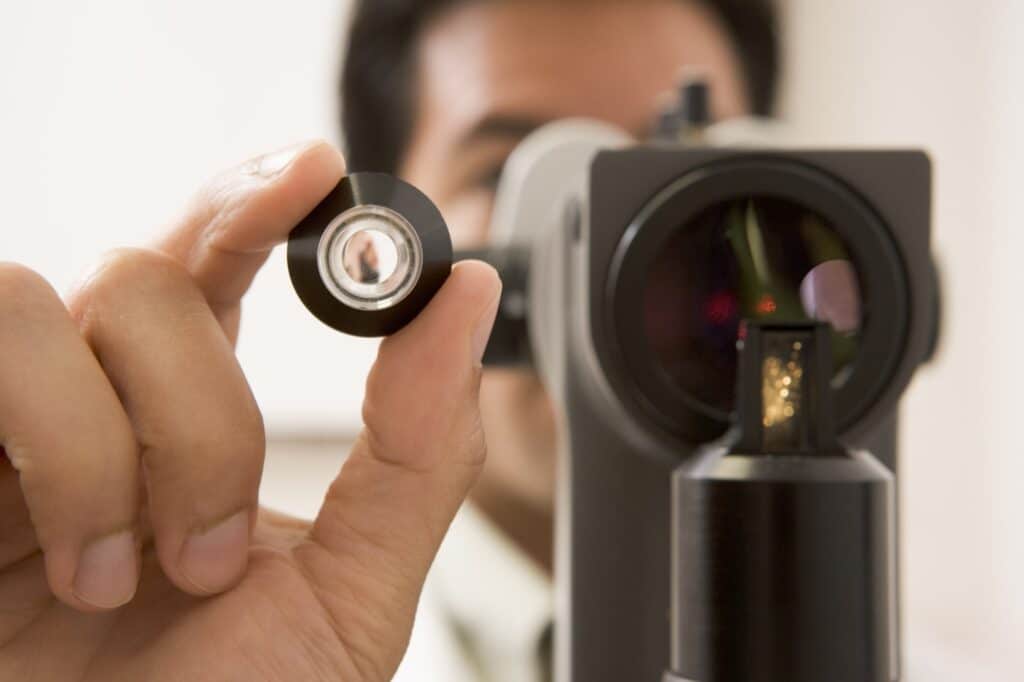If you are among the 3 million Americans diagnosed and living with glaucoma, you should be wary of various measures to slow the progression of this eye condition. Glaucoma is a lifelong condition that compromises your ability to see clearly and impairs your vision. Unfortunately, damage caused by this condition cannot be reversed.
However, this doesn’t mean you should give up on life. Various treatment options, procedures, and medications can slow the progression of glaucoma, especially if diagnosed at an early stage. Below are some beneficial tips for glaucoma patients.
Know the Limits of Your Field of Vision
Since glaucoma is a progressive condition, most patients don’t realize that their field of vision is getting smaller. Therefore, you should pay close attention to what you can see with ease and what you cannot see. For instance, when looking at someone, note if you can see hand movements clearly, especially when they extend their hands for greetings.
If you notice an onset of these limitations, you should make some changes to improve your safety. For starters, start using a walker or cane when walking outdoors. You should also dispose of throw rugs and other obstacles, such as coffee tables and power cords, in your home.
Know Your Driving Limits
As mentioned, glaucoma patients have a restricted visual field. This leads to changes in peripheral or side vision, which make it difficult for affected persons to see pedestrians or obstructions while driving. Glaucoma patients may also experience blurry vision and sensitivity to light when driving at night. Therefore, you should be aware of your vision changes and consult an ophthalmologist where necessary.
Note that losing part of your vision doesn’t prevent you from driving. However, you should consider your visual limits to avoid causing accidents. That aside, consider the following tips;
- Only drive in local areas with light traffic.
- If the condition has restricted your peripheral vision, changing lanes might become difficult. Always drive with a helper.
- Nighttime driving might be difficult. Therefore, limit driving at night as much as possible.
You should consult your ophthalmologist to determine if you can still drive safely.
Adhere to Glaucoma Medications
Taking your prescribed medications is important as it helps in reducing eye pressure, slows optic nerve damage, and preserves the remaining eyesight. Therefore, you should take the medications as prescribed. If you have several drugs, you should consider creating a schedule or setting the alarm to serve as a reminder.
Adhering to prescribed drugs strictly is the most important thing for patients who want to prevent the worsening of glaucoma. You should also consult your eye doctor frequently since some glaucoma drugs have serious side effects.
Live a Healthy Lifestyle
Glaucoma patients should also observe a healthy lifestyle to slow the progression of this condition. Some foods and activities can harm your road to recovery. Below are some foods to avoid to prevent the progression of glaucoma.
- Reduce trans fatty acids in your diet – trans fatty acids have high cholesterol levels that damage blood vessels in the body. They affect blood vessels anywhere in the body, including those in the eyes. Therefore, consuming foods rich in trans fatty acids, especially baked and fried items such as French fries, cookies, and cakes, can worsen glaucoma by destroying the optic nerve.
- Avoid food allergens – food allergies can also worsen glaucoma. Therefore, consult your physician to identify foods that cause allergic reactions. Most people are allergic to wheat, dairy, and corn.
- Take less coffee – most people don’t understand the connection between coffee and glaucoma. Well, coffee has been found to increase intraocular pressure, further damaging the optic nerve. Substitute your cups of coffee with other warm, healthy options, such as green tea.
- Find complex carbohydrates – carbohydrates increase the level of insulin in the body, which is disastrous for glaucoma patients. High insulin levels increase blood pressure and IOP, which worsen glaucoma symptoms. Therefore, while you shouldn’t stop carbohydrate consumption, find complex carbohydrates that won’t increase your insulin levels. This can be found in foods such as beans and vegetables.
- Do selective exercise – while exercise is good for patients with glaucoma, you should be wary of the effects of strenuous exercises on IOP. Therefore, exercises that can increase intraocular pressure should be avoided. These are any activities where the head is lower than the body, such as inverted yoga.
Leading a healthy lifestyle with glaucoma can be complicated. Therefore, it is best to consult a physician and nutritionist on the best practices.
The Bottom Line
Unlike other conditions, patients with glaucoma should be active in managing their condition. For instance, apart from observing the above-mentioned tips, they should ensure that they schedule regular comprehensive eye exams, learn how to administer eye drops, and use visual aids to improve their field of vision. While such patients can’t regain their full eyesight back, they can live a normal life.

